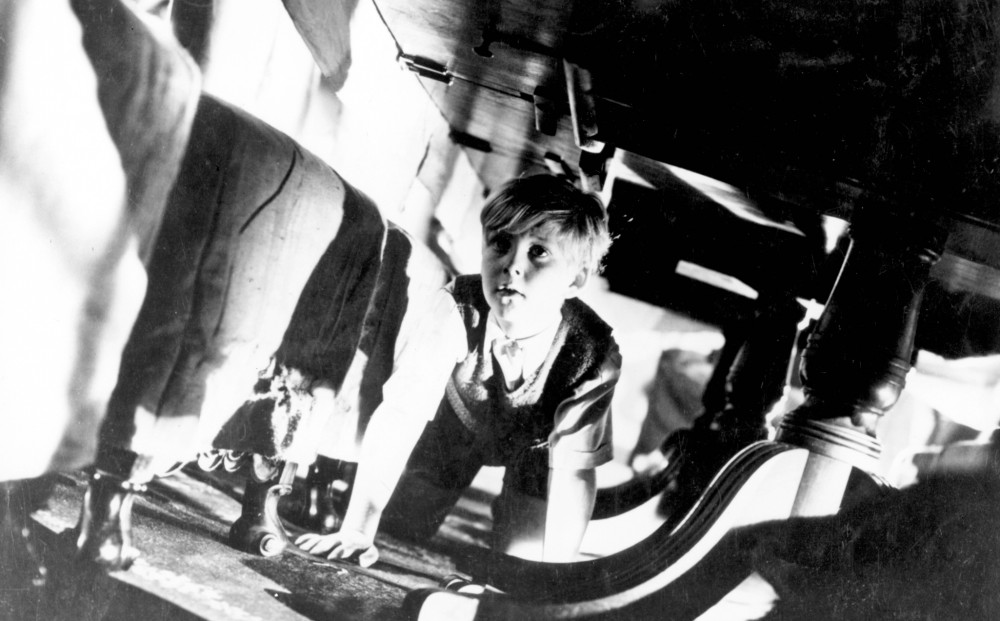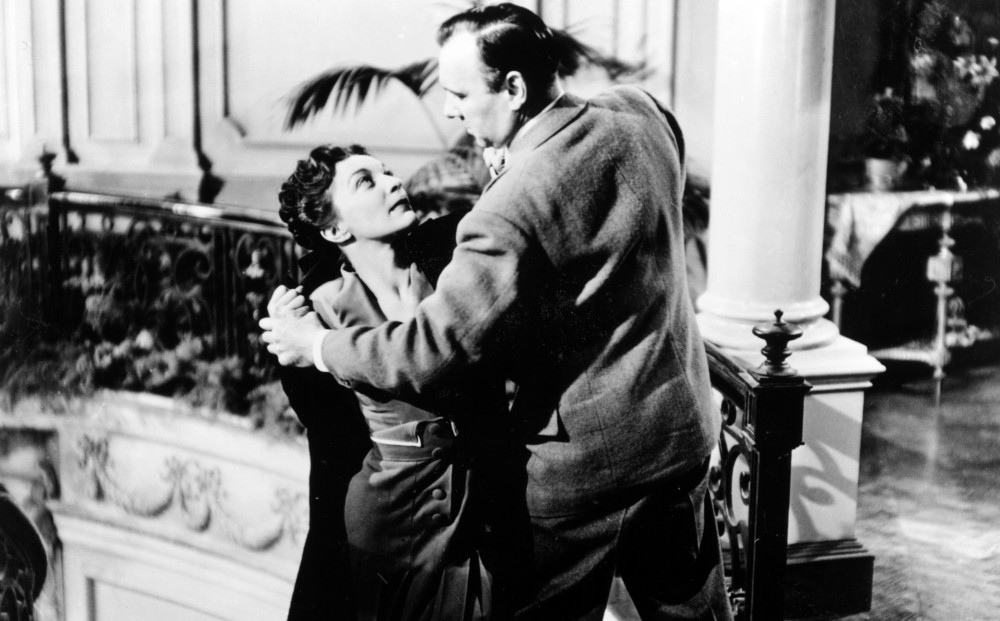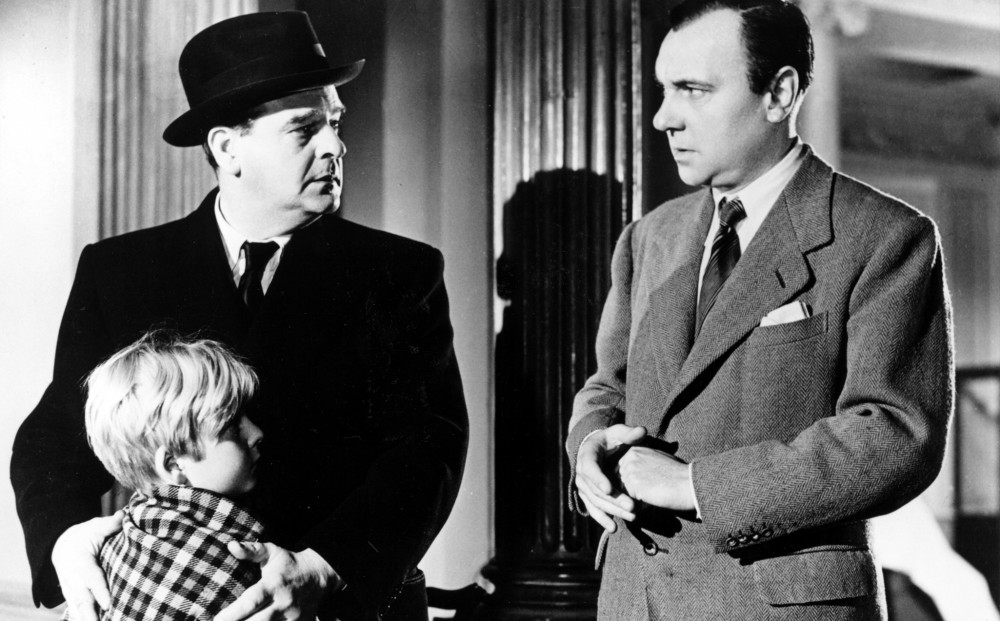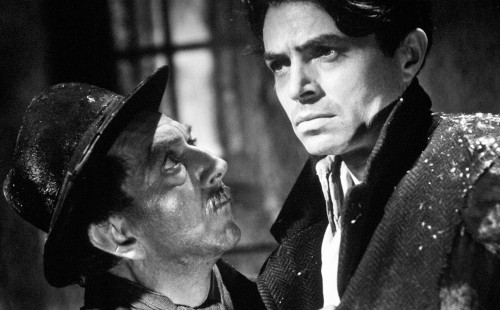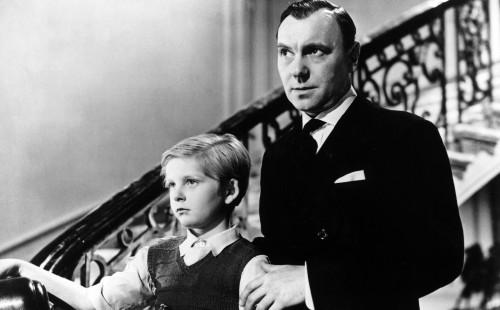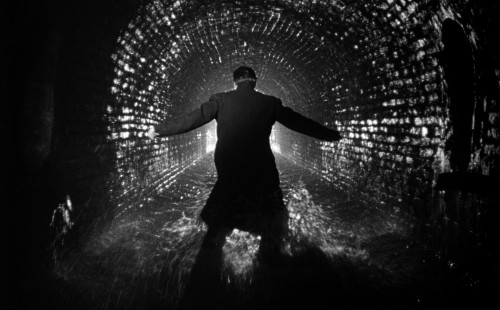Carol Reed’s
THE FALLEN IDOL
2:45
Wednesday, May 15
(1948) Looks like eight-year-old Phil (Bobby Henrey) will have his cavernous Belgravia Square Embassy to himself for the weekend. Dad the ambassador is off to retrieve Mom from a long hospital stay, so his only companions will be his beloved pet, MacGregor the snake; his idol, Baines the butler (Ralph Richardson); and his dreaded nemesis, the snake-hating Mrs. Baines (Sonia Dresdel). And when Phil trails Baines to a tea room tryst with embassy staffer Julie (Gallic legend Michèle Morgan), he becomes the solemn bearer of a Secret. But when an idyllic afternoon at the zoo is topped by a nighttime tragedy, and the soft-spoken police arrive to ask all those polite questions, Phil enters a world of lies that protect, lies that implicate, and eventually, truth that no one listens to. The first collaboration of writer Graham Greene and director Carol Reed was based on Greene’s story “The Basement Room.” Honored in its time (The New York Film Critics named Reed Best Director and both Reed and Greene were Oscar-nominated), Fallen Idol has tended to get lost as the middle child of Reed’s great “Noir” period. Seen again, it effortlessly combines a sensitive child’s-eye-view of the world with suspense that rivals Hitchcock — just follow the flight of the fateful paper airplane. DCP Restoration. Approx. 94 min.
Part of Carol Reed’s Post-War Noir Trilogy.
Reviews
“Every bit as worthy as [Odd Man Out and The Third Man]. The trio of Greene, Reed and producer Alexander Korda, as well as an expert cast toplined by Ralph Richardson, turned a story involving adult secrets and childhood fantasies into a classically well-made movie that is both unexpected and exceptionally gripping. As The Third Man’s admirers can testify, impeccable construction, keen psychological acuity and moral complexity are the hallmarks of Reed’s pictures from this period. In Idol, a terrific amount of emotional tension is added to the mix, a sense of possible impending doom that bespeaks a movie that knows what it is about…The best part of this picture, however, is the performance of Richardson, an actor not enough celebrated these days whose quietly insinuating voice and brilliantly equivocal presence make a marvelous impression.”
– Kenneth Turan, Los Angeles Times
Read the full review here
“SUPERB SUSPENSEFUL ENTERTAINMENT! Stands as one of the great films about looking, about perspective, about the way we watch and interpret not just film plots but each other.”
– Alan Scherstuhl, The Village Voice
“REMAINS UNSURPASSED!”
– Anthony Lane, The New Yorker
“Reed captures both [Greene’s] intentions and the child’s panicked isolation in a scene that finds Phillipe fleeing through city streets as steeped in shadow and dread as those in the Noirs of Anthony Mann.”
– Manohla Dargis, The New York Times
“Richardson starts out as an unlikely charmer, doing silent-comedy riffs for the boy’s amusement. Morgan makes seductive melancholy glitter. But Dresdel gives the standout performance as a woman whose bitterness becomes Satanic. The moment when her hairpin drops on Phillip’s pillow is one of the high points of domestic horror.”
– Michael Sragow

